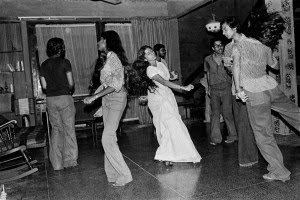The times they are-a-changing; really?


Pablo's work, as shown in the exhibition, captures the history of a process, where the spark of rebellion dims in a bout of drunken fancy.
After all, forgoing privilege is also a privilege for the privileged.
The times, however, never change for the man harrowing clods, or even for the maid and her wight walking home. They will survive another century, though.


A recent exhibition of Pablo Bartholomew provoked me into thinking along these lines, where the present progressive gets smudged with the blood-red hue of a glorious sunset. Dazzling, yet bereft of the undecided fate of a flipping coin, these black-and-white photographs seem too self-contained to be true.
The photos, taken together, evoke a kind of fragmented reality, alien to people who have actually managed survive the century. There is a hint of charming sadness in Pablo's oeuvre, bordering on the lyrical. For Pablo, it must be said, he had been brutally honest with his immediate surroundings; he never even tried to cross the border of familiar resolves. There lies his greatest strength, and shall we say, a quasi-romantic lure of what could have been, a derision not unknown to a large section of our committed dilettante. A paanjaabi-clad Dhritiman Chattapadhay, frowning, while holding a cigarette, perhaps, is the best example of it.
Pablo's work, as shown in the exhibition, captures the history of a process, where the spark of rebellion dims in a bout of drunken fancy.
After all, forgoing privilege is also a privilege for the privileged.
The times, however, never change for the man harrowing clods, or even for the maid and her wight walking home. They will survive another century, though.
